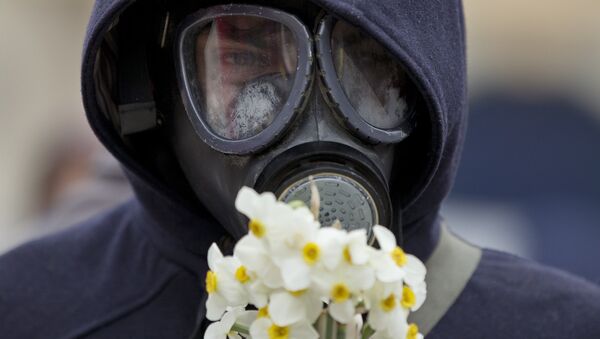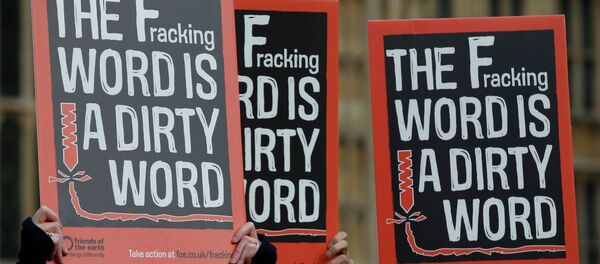Fracking involves blasting rocks underground with powerful injections of water, sand and chemicals to fracture the rock in the shale strata to release a gas that can be collected from a well.
The British government is behind the controversial technique, while many conservationists, residents and members of the Green Party remain firmly against fracking.
UK shale has lots of poisonous selenium scientists warn https://t.co/mWYb1UoSRI https://t.co/5kUDJESqJr
— BridgeKorp (@BridgeKorp) December 23, 2015
In 2011, it emerged that fracking tests near Lancashire in the north west of England were the likely cause of earthquakes in the area. Energy firm Cuadrila said that shale has test drilling had triggered the earth tremors, which didn't go down well with people living in Blackpool.
The report divulged that people living close to fracking sites could suffer poor health, financial hardship and pollution.
Fracking impact studies carried out in the UK also contributed to the UK's redacted report and said:
"Noise and light noise and light have also been cited in the US as environmental and health concerns for residents and animals living near drilling operations. Excessive and/or continuous noise, such as that typically experienced near drilling sites, has documented health impacts."
The report also cited the potential for noxious odors from gases to have an impact on air quality for local residents.
Whitewater, #Colorado residents continue to suffer with noxious odors from nearby #fracking water disposal http://t.co/c7DpNq2NxF #climate
— DeSmogBlog (@DeSmogBlog) August 7, 2015
And the recent study by a team of scientists in Scotland, which published their findings in the journal Applied Geochemistry, has revealed high levels of selenium in rock samples from a rock formation in the north of England which is rich in resources of shale gas.
Scientists say the significance of the discovery of high levels of selenium in the Bowland shale lies in the risk that high levels of the toxic chemical element could be released into rivers and streams during fracking operations.
"A major factor to be considered during shale gas drilling is the accompanying water, which may contain chemicals that require careful treatment. The samples we have analysed from the Bowland Shale are some of the most selenium-rich in the British Isles and far in excess of the levels of selenium found in the US example," said Professor John Parnell, who led the study.
@ukfathers Harmful levels of arsenic and selenium found in water near gas fracking operations in North Texas https://t.co/Oz6wZUpq7K
— David Mortimer (@ukfathers) December 22, 2015
"A number of the samples we tested exceeded the far stricter European Union limits, so it is clear that any drilling to extract shale gas in the Bowland Shale must be carefully managed," Professor Parnell added.
Meanwhile, Britain's Prime Minister David Cameron announced in August 2015 that the government would offer licences for fracking in 27 locations in Yorkshire, the East Midlands and the north-west of England.



